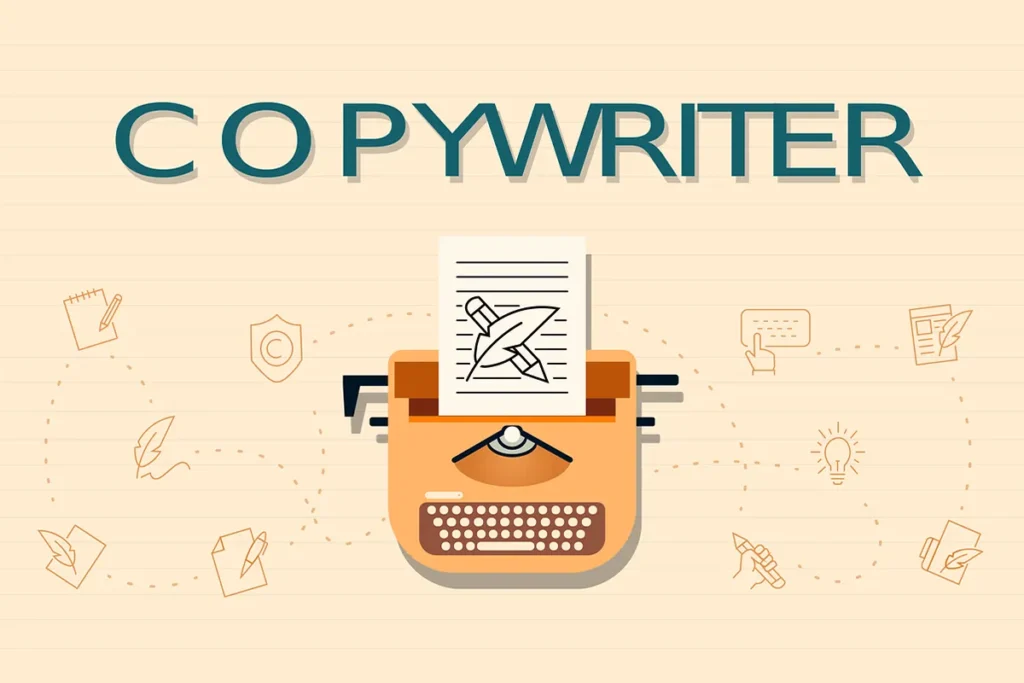Raising the revenue metrics is a constant struggle for big and small businesses. It is more than just writing words and publishing them. Copywriting can boost your revenue and take it to the next level if put to the right use.
Persuasive writing that compels the reader to take action performs much better as compared to dull and repetitive words. It is a skill that engages the attention of the readers and keeps them intact at the end. A successful marketing strategy relies on effective copywriting. Increasing revenue, generating more leads, and higher conversions significantly depends on good copywriting.
There are important tricks and techniques for copywriting that are developed over time. Finding all the information on one page is quite difficult. However, if you gain some good knowledge today that will sharpen your skills, it will be a good deal.
1. Know Your Audience
You must understand who your audience is for good copywriting. You should identify key groups such as age, gender, income level, and interests. This information helps in making messages that connect with specific groups. Changing your content to these groups makes sure your copy talks to their needs.
After you define your target groups, you need to change your messaging to meet their needs and problems. You use language and examples that fit their experiences. Personalizing your messages makes the copy more engaging and raises conversion rates for each group of your audience.
2. Attention-grabbing Tactics
Using numbers and lists can make your headlines better. People like simplicity and clarity. Lists help the reader see what to expect. They can quickly find the main points. For example, “5 Ways to Boost Your Sales” is strong. It tells readers they will receive useful information quickly. A number makes a promise. It can make people feel more engaged. When they know what they will learn, they will click more often.
Urgency drives action. When readers feel they must act now, they jump in. Use words like “limited time” or “ends soon.” People do not want to miss out. This fear can lead to more clicks. Curiosity also works well. Ask questions in your headlines. For example, “What Is the Secret to Great Copy?” This makes me interested. Readers want to know the answer. They will click to learn more.
3. Use Clear and Concise Language
Simple language helps your message reach people. Readers are busy. They do not want to decode your message. Use words that are easy to understand. Keep your sentences short and clear. This makes your writing flow well. When you use clear language, more people will connect with your ideas. Avoiding jargon and complex terms is important. Not everyone understands industry words. Make your writing easy for all readers to understand.
Brevity is a strong tool for copywriting. It makes readers stay engaged. Techniques like bullet points can help keep things short. Each idea should stand alone. This helps readers not feel overwhelmed. By using clear phrases, you improve understanding. Your writing should give readers the information they need without extra words. When you write clearly, you show respect for your readers’ time and attention.
4. Incorporate Storytelling
Storytelling can make your writing stronger. It helps readers feel emotions. When readers connect emotionally, they will remember your message. Good stories can grab their attention and keep them interested. They go beyond simple facts. Instead, they create a clear picture in the reader’s mind. This makes your writing unforgettable.
- Relatable characters: Relatable characters make stories come alive. They should be relatable to your audience. A business owner wants to increase sales. This can connect with many readers. People like to see themselves in a story. When readers see themselves, they care about what will happen next. They feel invested in the results.
- Engaging conflict: Conflict is important for an interesting story. It makes challenges for characters to face. This struggle makes readers keep reading. For example, a character can have problems connecting with customers. Tension pulls readers into the story. Readers want to know how the conflict will end. This leads to a deeper connection with your message.
- Satisfying resolution: A story needs a resolution. After the conflict, readers want answers. The ending should give closure. Ideally, it should show how the character solves the challenges. This resolution satisfies readers. It also shows your brand’s solution. It shows how your product or service can fix their problem.

5. Implement Persuasive Techniques
Persuasion is important for good copywriting. Learn basic ideas like reciprocity and commitment. Readers want to trust you, so build trust with your words.
Using testimonials and reviews can improve your credibility. When potential customers see others having good experiences, they feel safer buying. Social proof works like a safety net. It makes your claims seem more believable.
Emotional appeals can be very powerful. They connect in a deeper way. Logical appeals give strong reasons to buy. A good mix of both makes for better conversions. Fact-checking is important. Use facts to support your feelings. This helps make a more persuasive argument.
6. Create a Strong Call to Action (CTA)
A strong call to action is important in copywriting. A good CTA encourages readers to take action. Without it, readers may leave without doing anything. A clear CTA motivates them to click. The final push turns interest into action. You want readers to feel excited to take the next step. Always think about what you want them to do.
There are many types of CTAs you can use. Buttons are popular and are easy to see. Phrases like “Buy Now” or “Sign Up Today” are effective. They create a sense of urgency. You can also put phrases in the text. For example, “Learn More” invites readers to go deeper into your content. Social media posts can also have CTAs. Asking readers to share or comment can help engagement. Choose the best type based on where your CTA is.
Many companies use strong CTAs very well. The famous fitness brand Nike often says, “Just Do It.” This is simple but very powerful. It tells customers to do something. Another example is the food delivery service HelloFresh. Their CTA is “Get Started.” This tells customers they will begin a new cooking journey. Look for inspiration in these examples. They show how words can lead to action.
7. Optimize for SEO
SEO writing helps your content get noticed online. Many copywriters ignore this. Good SEO practices can improve visibility. First, you need to optimize your content with keywords. These are the words people search for online. AI tools are available to perform this task easily. It is vital to add keywords naturally. Do not force them in your writing. This can make your writing feel odd.
Meta tags and alt text are important for SEO. Meta tags explain your page to search engines. They need to be engaging and true. Alt text gives descriptions for images. This also helps with accessibility. Both improve your chances of being seen in search results. Use these tools wisely to increase your reach.
8. Edit and Revise Your Content
Editing your content is very important. It helps you make messages that are clear and strong. When you edit, you find mistakes and sentences that are not clear. Good copy can change how people think about your business. You must take the time to revise your work. You should not skip this step.
- Easy AI Checker: This tool is good at improving writing. It finds AI-written text and makes it sound more human. This tool makes your writing easier to read. It helps your content feel natural and interesting for people. By changing the text to fit human readers, this tool makes your writing more effective. It makes your messages connect well with your audience and get better results.
Try these ways to edit well. First, you read your work out loud. Hearing the words can help you find errors. Second, you take a break before you edit. A fresh mind can see problems more easily. Third, you ask a friend to read your copy. Another person’s opinion can find mistakes you missed. After you finish, you look for repeated ideas and take them out. Every sentence must have a clear purpose.
9. Analyze and Measure Performance
Analyzing how well your writing works is important. You must know what works and what does not work. This information helps you make choices. Tracking performance can help increase sales and engagement. You cannot improve what you do not measure.
Focus on important numbers. Click-through rates show how many people did something after reading your writing. Conversion rates show how many readers became customers. These numbers tell the truth about your results. You should look at bounce rates, too. They show if readers leave your page fast. High bounce rates mean you need to change your way of writing.
Change your strategies based on the data. If something does not work, you must change it. Good copywriting needs you to keep learning. Test different headlines, CTAs, and formats. This process helps growth. Successful copy changes over time. Be flexible and respond to your audience’s needs.
10. Stay Updated with Trends
The copywriting world changes very fast. New trends affect how people write and sell. To stay ahead, you must learn these trends. If you ignore these changes, your copy can become outdated. Customers search for fresh ideas. They want to read things that grab their attention. Keeping your skills sharp is very important for lasting success.
Many resources help you stay informed. Follow blogs and podcasts about the industry. They share tips and news about copywriting. Social media is another good source. Join groups where copywriters share ideas. You can learn from their experiences. Attend webinars and workshops to listen to experts. Online courses also give you new knowledge. Always look for fresh insights about copywriting.
When you learn about new trends, you can update your style. This keeps your writing fresh. It also helps you connect with your audience. Trends often show what customers want. If you use modern techniques, your copy feels timely. Use new language styles and formats. Make your writing easy to read and interesting. Adjust your tone to fit the audience and the platform.
Conclusion
To boost your revenue with copywriting, remember the ten tips. Know your audience. Write great headlines. Keep your language clear. Tell stories. Use persuasive techniques. Create strong calls to action. Optimize for SEO. Edit your work. Analyze performance. Stay updated with trends. These tips will help your business.
Practice makes perfect. Keep refining your copy. Regularly test what works best for your audience. Be willing to adapt and change. Your copy is the voice of your brand. Make it strong. Use these strategies to see a real difference in your revenue.

